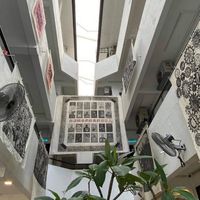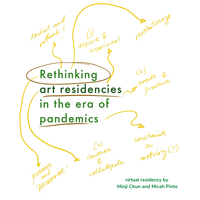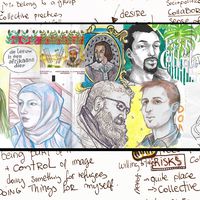Funding the Arts in the time of pandemic
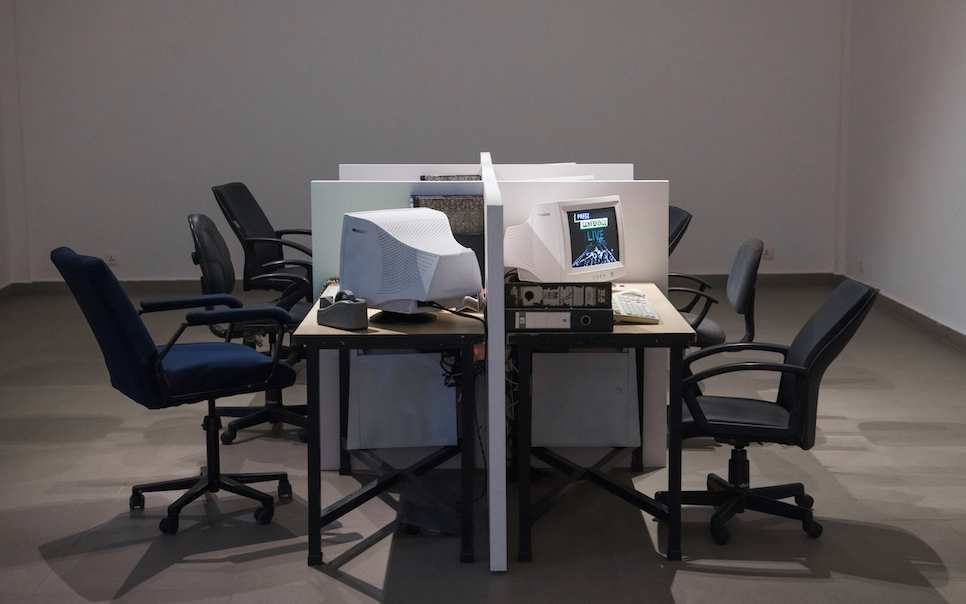
Last December, culture360 has launched a new series of articles on how the arts are adapting to the "New Normal". One year into the global pandemic, this series will present experiences and stories of resilience, adaptation, and success from the arts sector to the Covid-19 pandemic, with particular focus on differently disabled artists and arts organisations, artists residencies and arts funding.
This article by Veerangana Solanki looks at various art funding models that emerged in three South Asian ASEM countries – Bangladesh, India, Pakistan – to support artists and art practices during the Covid-19 pandemic.
The year 2020 has probably been the strangest year that the world’s current generation has lived through collectively. Care has manifested itself in various forms, with health workers at the forefront and support systems looking at the immediacy of requirements in their own regions. Almost every individual and sector, including the arts has dealt with various forms of setbacks. Artists have struggled to find platforms to showcase their work, both in terms of accessibility and in translating mediums to an online format. Art spaces and cultural organisations have had to constantly rethink and reinvent exhibition formats in the online as well as the physical space with audience restrictions.
Amidst these various levels of restructuring methods of working and communication, there have been numerous art initiatives that have mushroomed to support the arts. These have manifested themselves in local and some cross-border formats of self-funded platforms, fund raisers, print sales, grants and much more. The following article looks at a selection of such initiatives that emerged in three ASEM countries in South Asia, namely, Bangladesh, India and Pakistan.
Initiatives in Bangladesh
The arts community in Bangladesh has a strong sense of collaboration and exchange through the various organisations and festivals set up by artists and private foundations, both of which are deeply engaged in supporting art practices and public access to the arts. These entities initiated a number of support grants and programmes in response to the COVID19 situation. The Samdani Art Foundation arranged a series of talks and virtual funded studio visits for artists in Bangladesh, while also engaging in a number of collaborations. Proceeds from a partnership with the JAAGO Foundation, ‘Art Around the Table’, were given to families affected by COVID19. An ongoing project with Foundation for Indian Contemporary Art (FICA), ‘Stitching Screens’, is a cross-border artists’ digital collaboration. A collaboration with the Britto Arts Trust supported the pandemic’s economically affected Bangladeshi rickshaw and cinema banner painters. The Britto Arts Trust worked on a food project supported by the FFAI to support artists for the ‘Zero-Waste Food Project’, while Brihatta Art Foundation funded the production of works for fifteen artists under the ‘Home Art Project 2020’. The Durjoy Bangladesh Foundation set up a number of grants, opportunities and projects for artists while also partnering with Gidree Bawlee Foundation of Arts to support lives during the COVID-19 pandemic under the ‘Bhoomi’ project.
Initiatives in India
When India moved into its first severe lockdown in March 2020, a majority of the country’s population found themselves stranded in their place of work or education, usually far from their hometowns. This included young artists and creative practitioners who grappled with the displacement of studios and no spaces available to showcase their works. Art Chain India set up by artists Ayesha Singh and Purvai Rai was one of the primary initiatives in India that provided a democratic platform of opportunities that has assisted and encouraged the development of community through peer support. Young Art Support is another such initiative that was set up by three young artists - Abhishek, Ekta and Al-Qawi – for 2020, 2021 art student graduates in India to showcase and sell their works online. In the field of photography, there were multiple print sales where the proceeds were used to as relief funds for communities whose lives were laterally affected by lockdown. Two such initiatives include Prints for India and the print sale by The Confluence Collective. Khoj Studios set up the Khoj Support Grant 2020 as well as a Support Network to fund and mentor early career artists and practitioners on a bimonthly rolling basis. Carpe Arte used their popular Instagram handle to promote young independent artists, while the Kala Chaupal Trust gave microgrants to artists to assist them with basic material costs. The Experimenter Generator Co-operative Art Production Fund was set up during the lockdown period of the pandemic and is open to all artists irrespective of age or nationality. With an ongoing open call, grants such as these have created sustainable longstanding opportunities for art practitioners.
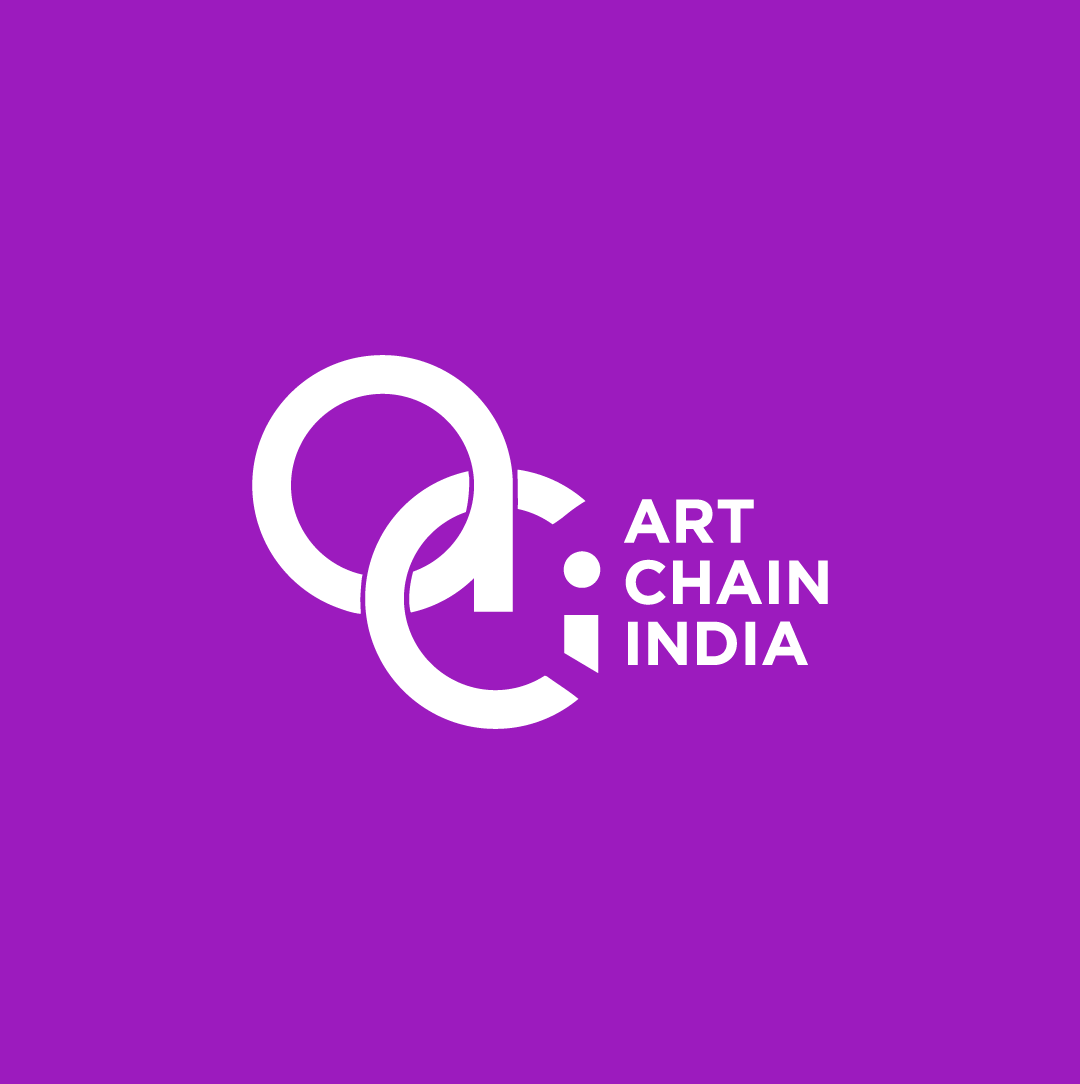
Initiatives in Pakistan
Countrywide lockdowns in Pakistan led to several initiatives set up by artists and individuals to create a collective sense of support for the arts in Pakistan. Most of these initiatives focused on using their social media handles for a widespread reach. Online modes of communication have seen a surge during the pandemic. Instagram particularly has been a primary form of dissemination for art initiatives and grants. Art Chain Pakistan was set up as an Instagram hashtag as a platform for creative practitioners and their need to build a space that addressed the urgency of a community. Kurachee, a platform for illustrators and designers announced their first ‘Tiny Publication Grant’, a production grant to help sustain independent artist publications and book making practices. Tasweer Ghar, a space dedicated to photography in Lahore partnered with Grain Projects, U.K. and the Pathshala South Asian Media Institute in Bangladesh for a bursary opportunity, ‘Transforming Narratives’ that focused on community exchange and challenges from Covid-19, while facilitating a digital exchange between photographic artists in Pakistan, Bangladesh and the U.K. Responding to the reality of the virtual and digital, V M Art Gallery hosted an online residency – IRL: In Real Life – that reflected on ways in which modes of communication and experiences changed in a Covid-19 world. Other institutes and organisations that facilitated gatherings, learning circles and review sessions include: The Writing Institute; Open Studios organised for artists organised by Noor Ahmed at Cinema73 Karachi; Art Divvy run by Zahra Khan hosted artists conversations and online film festivals.
Future Sustainability
The multitude of support platforms that were born out of distance and inaccessibility of the Covid-19 pandemic indicate the parched need for more such initiatives in the arts. While this article focuses on three South-Asian ASEM countries, the nature of funding and mentorship for the arts extends into thinking about sustainable futures that celebrate and nurture art practitioners and creativity – for institutions and individuals.
Photo credit: IRL Arsalan Nasir's. Metamorphose, 2020, Image Courtesy - VM ART GALLERY Photography Credit - Humayun Memon
Veeranganakumari Solanki is an independent curator and writer. Her research interest lies in the manner in which: interdisciplinary forms and art merge to create dialogues that travel from public spaces into private ones, the dissemination and varied interpretations of images across disciplines, and the structuring of curatorial research around artistic practices that expand the ideas of medium specificity through narrative and story-telling. Her curatorial discourse has primarily focused on art practices within the extended South-Asian context. She was the 2019 Brooks International Research Fellow at Tate Modern in the curatorial and photography department and a resident at the Delfina Foundation. Veerangana is currently based in India.
Similar content
from - to
01 May 2020 - 03 May 2020
deadline
18 Sep 2020


